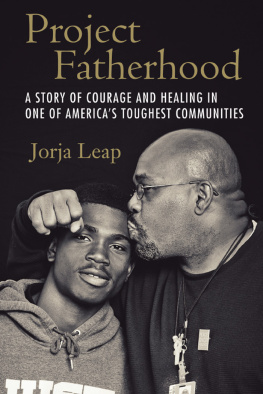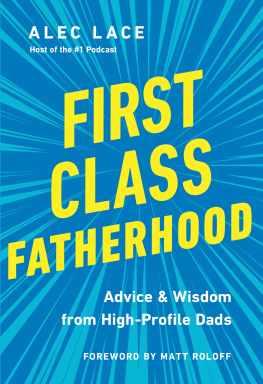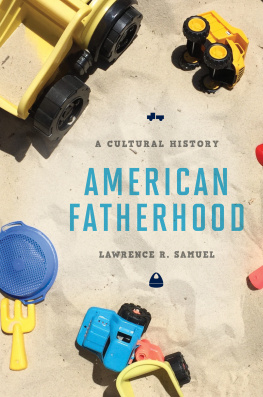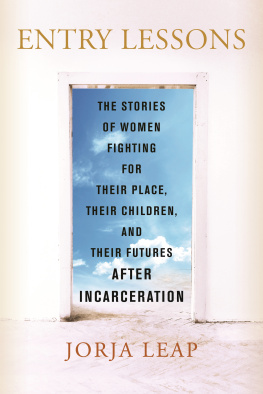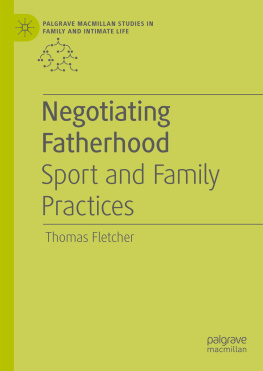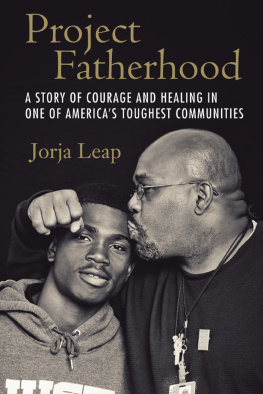Project Fatherhood
A STORY OF COURAGE AND HEALING IN ONE OF AMERICAS TOUGHEST COMMUNITIES
Jorja Leap
BEACON PRESS
BOSTON
This book is for my brothers,
Tony and Chris,
and for our father,
Daniel Manos
But God bless the child
thats got his own.
BILLIE HOLIDAY
CONTENTS
ONE
Watts
Watts is home. Born and raised in Watts I since moved but Watts will always be home for me, I love everything about it, its where I come from. Even though Watts is known for its low income, gang infested, drug infested streets, it made me the person I am today coming from Watts motivates me to do better and have a better life. But Watts will always be home. WATTS UP!!!!
Vince, February 21, 2011, 4:13 p.m.,
Mapping L.A., Neighborhoods: Tell us what Watts means to you,
Los Angeles Times online
Watts is worth it.
Watts United
My relationship with Watts began with a riot.
In 1965, I was nine years old and thrilled to be spending the night with my aunt and uncleThea Adrienne and Theo Peteat their home in South Los Angeles. In my extended, Greek family, Theo Pete was clearly my favorite relative. I loved listening to him talk: he was a high school history teacher and I was a willing pupil.
He had put himself in charge of my philosophical education for as far back as I could remember, giving me books, assuring me that Communists were not evil human beings, and encouraging me to become an astronaut or a UN ambassador. He also was on the lookout for any signs of perfectionism in my already compulsive personality, informing me that there were only three perfect people on earth: Pope Paul, Theo Pete, and Mary Poppins.
Because of this, I listened raptly as he explained what we were watching unfold on the black-and-white television in the kitchen. But the sense of distance the TV coverage created was an illusion. Rampant violence was occurring less than five miles away. It was a hot August night, and the normally active streets of South Los Angeles were empty. Panic and dread mingled as my aunt repeatedly answered the ringing phone. Despite Thea Adriennes calm, there was no mistaking the look on her face. I knew something terrible was happening in my nine-year-old world. All night long, the calls charted rumors about the course of the rioters. They were six blocks awayno ten blocks away. They would be in Inglewood by morning. The police couldnt get them under control. The National Guard was coming and it would all be better in a matter of hours.
I didnt understand who they were.
In the midst of all the false reports, Theo Pete explained that they were the people who lived in Watts, a small community nestled in the easternmost corner of South Los Angeles. He said they were rebelling against injustice, then added that the rioting had to be viewed in a historical context. The problems in Watts were economic and revolved around the issue of race. The term African American had not yet slipped into popular usage as Theo Pete explained how the people of the Negro race had been subjected to discrimination at every level, how they experienced the worst forms of social exclusion based solely on the color of their skin and fantasies about their differences from whites. What Theo Pete told me burned into my brain: the rioters were justified, the police were out of control, and after all, what could you expect when the gap between whites and blacks was so large in all facets of lifejobs, housing, schools, resources, the future?
That night is a memory of multiple images: the TV depiction of the police in their riot gear, the black faces filled with despair and rage as they tried to protect themselves from the swinging billy clubs, the smell of smoke and burning rubber. People packed up their wedding photographs and good silver and left town for a few days. But throughout the six days of television coverage and mainstream hysteria, Theo Pete refused to divert from the narrative he offered.
The riots were inevitable. Watts has always been the poorest part of Los Angeles. People pretend it doesnt exist. And were not watching a riotits actually a social protest. The problem is what the violence is doing. Everyone is afraid instead of understanding the problem. And the worst thing is, these poor peopletheyre burning their own neighborhood and their own stores. Were all so scared theyre going to do something to us. Theyre only hurting themselves. Theo Pete stopped talking long enough to shake his head. But all of this will drive home the truth. Things are gonna change.
At times, during the decades that followed, his predictions appeared overly optimistic. The retail businesses that burned down during the six days of the Watts riots closed and never returned to South Los Angeles, limiting residents to a forced choice between liquor stores run by southern European immigrants or mom and pop grocery stores operated by Korean families. In the years that followed, many parts of Watts looked like a wasteland of boarded-up buildings and abandoned houses.
However, there was also room for hope. In the aftermath of the riots, Martin Luther King, Jr. General Hospital was built in the heart of Watts, the civil rights movement flourished, and affirmative action measures were implemented. Eventually, decades later, an African American man was elected president of the United States. I sometimes allowed myself to think that things might actually be changing.
But on a February night, forty-seven years later, I wasnt so sure.
It has been two days since a black teenager, Trayvon Martin, was shot and killed by George Zimmerman, a neighborhood watch volunteer in central Florida. Nothing has happened to Zimmerman even though there has been a national outcry that something must be done. Just what that is depends on who is talking. Right-wing advocates have established a George Zimmerman legal defense fund with a website that has already collected $100,000. President Obama has announced that if he had a son, that young man could have been Trayvon Martin. There have been demonstrations outside of the Florida police department that arrested and then released Zimmerman. Both the twenty-four-hour television news cycle and the blogosphere are pulsating with commentators anticipating the potentially violent reaction of the black community. All of this rhetoric conceals a multitude of misunderstandings, because a high school student wearing a hoodiewho might or might not have been at the wrong place at the wrong time, who might or might not have been a gang memberwas shot and is now dead. And there were other problems.
Trayvon Martin was black. George Zimmermandespite his vaguely Jewish-sounding last namewas brown. In Los Angeles, many felt additional uneasiness because of the conflict between the African American and Latino communities. Over the past decade, as the demography of Southern California shifted, South Los Angeles in particular has evolved into a divided region, with a virtual Mason-Dixon Line running between the two groups. Resentment between African Americans and Latinos was part of life, and it wasnt just gang versus gang. The frisson of anxiety in the air was palpable and the LAPD was on tactical alert. Everyone was trying to work around the sense of imminent danger, the feeling that something was going to happen. So many believed that somewhere, sometime, the African American community would explode. As I drove into South Los Angeles that afternoon, a National Public Radio commentator posed the question How does the black community feel?
I was about to find out.
Two hours later, a group of black and brown menactive and former gang members, post-prison felons, and adolescentssits in a small room at a community recreation center in the middle of the Jordan Downs housing development. This group has been meeting every Wednesday night for over a year, but tonight is different. The room is silent. A wave of tension rises, like heat from the sidewalk. Slowly, one of the men begins to speak.

